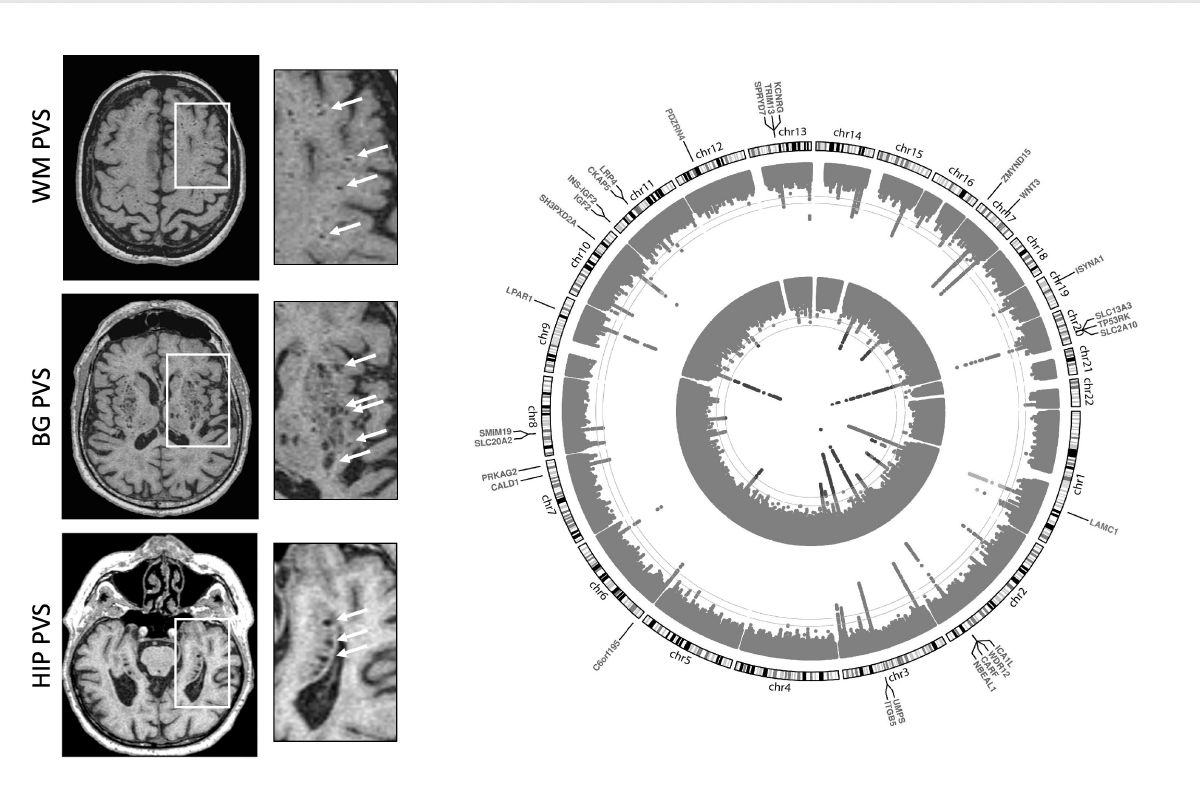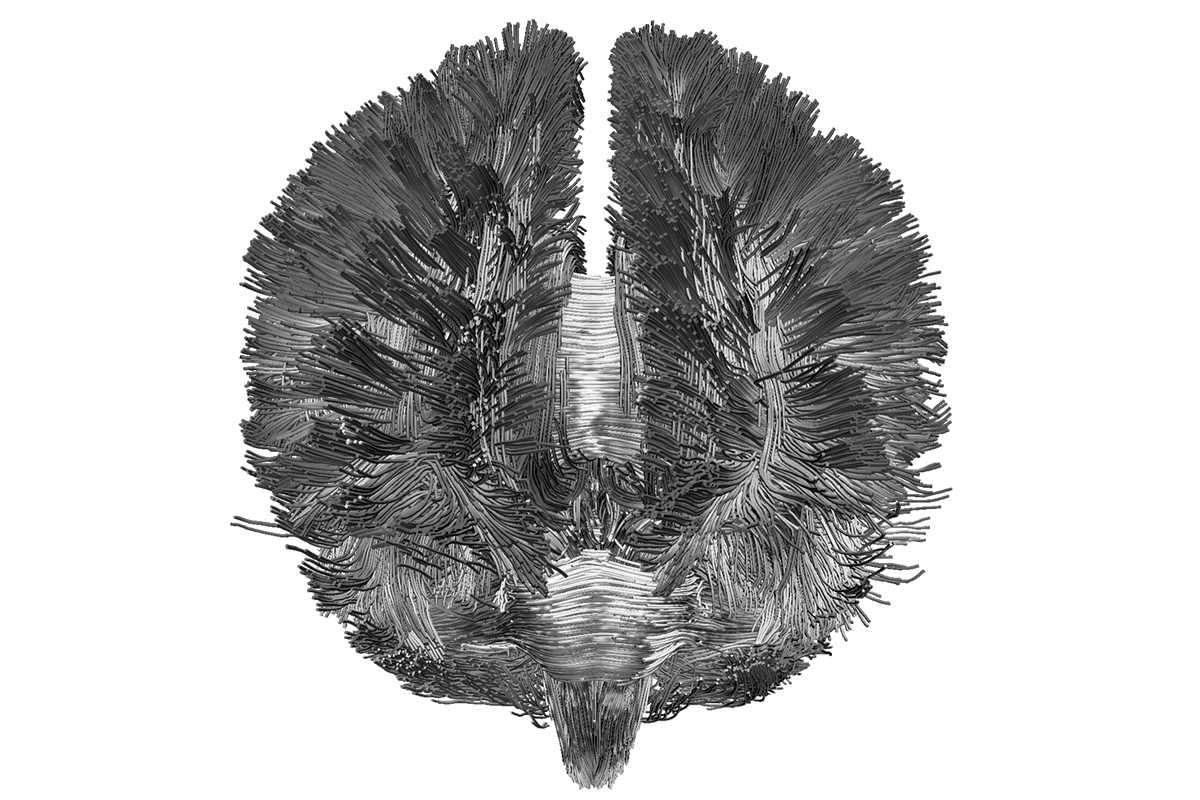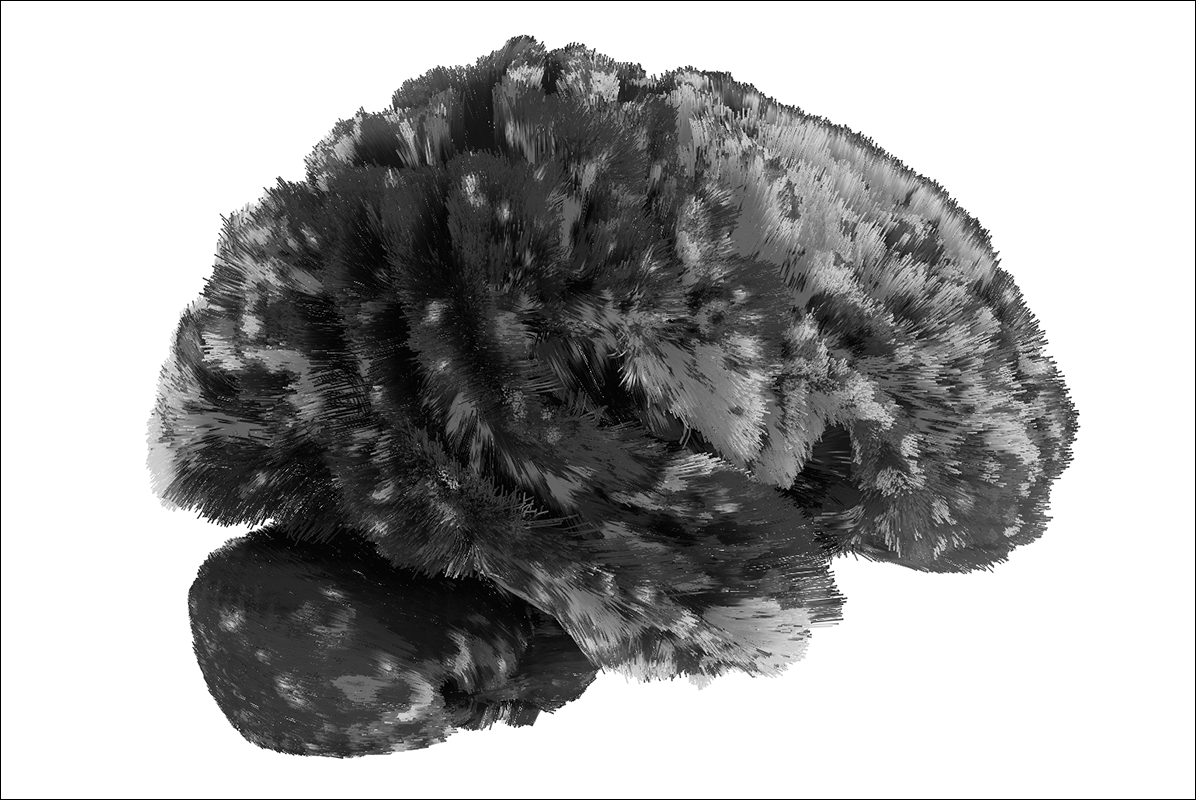Genomics of perivascular space burden unravels early mechanisms of cerebral small vessel disease.
First genomic study on EPV
A large international collaborative genomic study led by VBHI researchers, that explored the genomics of perivascular space burden (PVS), an emerging MRI-marker of cerebral small vessel disease (cSVD), was just accepted in principle for publication in Nature Medicine.
This first gene-mapping study of PVS, one of the earliest imaging features of cSVD, leveraged extensive data from 21 older population-based cohort studies participating in the CHARGE consortium and used elaborate machine-learning approaches for PVS quantification in the most recent studies.
In total, 24 genome-wide significant risk loci for PVS were identified in 40,095 participants of 4 ancestries (96% European), with 6 additional loci in secondary multivariate analyses accounting for other cSVD markers. These PVS risk loci were strongly associated with PVS in 1,748 young healthy adults in their twenties and 2,862 older Japanese community-dwelling participants, in aggregate and individually for two thirds of the loci. PVS risk loci were enriched in early-onset leukodystrophy genes and genes expressed in fetal brain endothelial cells, further suggesting early-life mechanisms.
These findings provide completely novel insight into the biology of PVS across the adult lifespan and its contribution to cSVD pathophysiology, with potential for genetically informed prioritization of drug targets for prevention trials of cSVD, a major cause of stroke and dementia worldwide.
Scientific publication
Duperron, MG., Knol, M.J., Le Grand, Q. et al. Genomics of perivascular space burden unravels early mechanisms of cerebral small vessel disease. Nat Med 29, 950–962 (2023). https://doi.org/10.1038/s41591-023-02268-w


